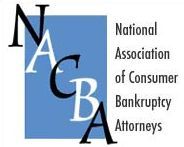Through a Chapter 7, most of your debts will be discharged. Credit cards, medical bills, utility bills, deficiency balances on car loans, and many more are completely discharged. Student loans will not be discharged except in rare circumstances, and neither will alimony, child support, and recent tax debt. Keep in mind that the discharge only applies to debt that was incurred before you filed for bankruptcy, so if you incur debt after you file, you are still responsible for that.
Upon completion of a Chapter 13 plan, the remaining balances on most of your debts will be discharged, with certain exceptions similar to Chapter 7. Since payments are made to creditors under a Chapter 13 plan, some creditors will have been paid in full. Typically, however, credit cards, medical bills, utility bills, deficiency balances on car loans, and other unsecured debts are only partially paid, if at all, in Chapter 13 plans. Debts owed for long term loans, such as mortgages, are not discharged if the Chapter 13 plan provided for ongoing payments to keep them current during the plan term, but if you elected to surrender the house instead of maintaining the payments, the mortgage debt would be discharged.
What if I have been sued or I have a judgment or writ of execution against me?
If you have been sued, the bankruptcy filing will stop the lawsuit dead in its tracks. Your attorney may be able to remove the judgment lien or writ of execution as well. The attorney will file a Motion to Avoid Judicial Lien, and Seelinger Law has a 100% success rate in these motions to eliminate liens. It is important to call quickly before the bank has garnished your checking account or other property. Also, keep in mind that a judgment against a Pennsylvania resident is an automatic lien against any real property they may own. This means that a judgment creditor will have a lien on your house by obtaining a judgment. Bankruptcy is one of the only tools to remove this type of lien. If you have been sued or even if the lawsuit has finalized with a judgment it is not too late. Protect your rights by calling Seelinger Law so that your case may be evaluated free of charge.
Does filing for bankruptcy really stop collection activity?
Yes, that and more! As soon as you file, the court issues what is called an Automatic Stay, and notifies your creditors. The automatic stay is a court order directed to your creditors and acts like a cease and desist order. Your creditors will receive the notification and are legally bound to discontinue their collection efforts. This includes phone calls, letters, lawsuits, etc. This court order will also stop foreclosure and repossessions, as well as wage garnishments. The creditors tend to obey this order strictly, as any breach is a violation of federal law bringing with it federal sanctions and penalties.
Can filing for bankruptcy stop a lawsuit against me?
Yes. The automatic stay that occurs shortly after filing will stop a lawsuit against you and will also stop creditors from taking other actions such as garnishing your bank accounts or wages. The automatic stay can also prevent your car from being repossessed and prevent your home from being foreclosed on. Your attorney can make the lawsuit STOP. If you have been sued, the bankruptcy filing will stop the lawsuit dead in its tracks. Your attorney may be able to remove the judgment lien or writ of execution as well.
The attorney will file a Motion to Avoid Judicial Lien and Seelinger Law has a 100% success rate in these motions to eliminate liens. It is important to call quickly before the bank has garnished your checking account or other property. Also, keep in mind that a judgment against a Pennsylvania resident is an automatic lien against any real property they may own. This means that a judgment creditor will have a lien on your house by obtaining a judgment. Bankruptcy is one of the only tools to remove this type of lien. If you have been sued or even if the lawsuit has finalized with a judgment it is not too late.
Protect your rights by contacting Seelinger Law so that your case may be evaluated free of charge.

